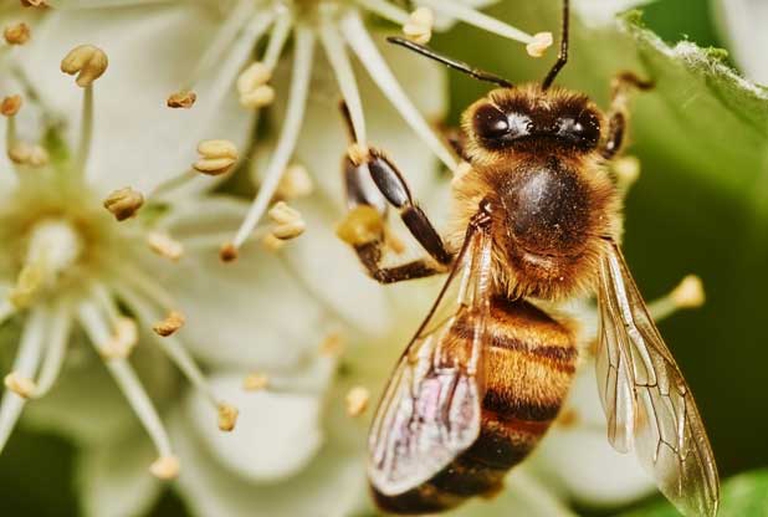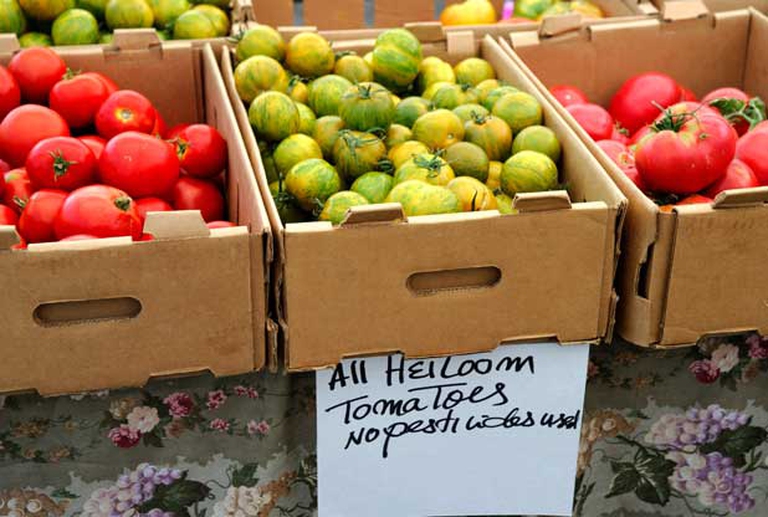
Factory farming conditions and antibiotic-resistant pathogens emerging as a result of them pose an existential threat to humans in the form of zoonotic diseases. Why it’s time to produce and consume food more thoughtfully.
Un nuovo studio conferma la nocività dei pesticidi neonicotinoidi per le api. Greenpeace ne chiede la messa al bando per tutti gli impieghi e tutte le colture.
Neonicotinoid pesticides are harmful to honeybees and shouldn’t be sprayed in any crop. This is the appeal launched by Greenpeace after that the EFSA, (European Food Safety Agency) released a new study demonstrating that spraying three types of neonicotinoids on the crops has a dangerous effect on honeybees.
The EFSA tested thiamethoxam (pesticide produced by Syngenta), clothianidin and imidacloprid (both produced by Bayer) sprays on the crops, discovering that “there is evidence of potential harms and the need to apply the precautionary principle to exclude their presence in the environment”. In its assessment, the European Food Safety Agency also points out the lack of information on the impact of these pesticides on the other pollinators, highlighting that “there are not accurate data available to reach firm conclusions on the status of global pollinators in terms of their abundance and diversity”.

Currently, the ban on neonicotinoids doesn’t concern their use in greenhouses and allows farmers to spray them on groves after their blooming; some European countries, moreover, have allowed some exceptions to the ban. The UK, for example, has recently authorised their use for rape cultivation.
“The EFSA confirms what was demonstrated by scientific evidence: neonicotinoids represent a real harm for honeybees and the future of farming”, states Federica Ferrario, manager of the sustainable farming campaign of Greenpeace Italy. “The European Commission should extend the ban to any use of these substances and to every crop, and put an end to national waivers. There are different alternatives to synthetic chemicals and the EU should encourage farmers to employ them”.

In a new study, the environmental association showed a series of effective alternatives to protect apple trees in Europe without using pesticides, supporting the importance of an organic farming system that increases plant immunity against diseases and parasites. And to promote the growth of crops and increase the nutritional status of plants, the study suggests to use natural fertilising methods and natural soil and crop management.
Siamo anche su WhatsApp. Segui il canale ufficiale LifeGate per restare aggiornata, aggiornato sulle ultime notizie e sulle nostre attività.
![]()
Quest'opera è distribuita con Licenza Creative Commons Attribuzione - Non commerciale - Non opere derivate 4.0 Internazionale.
Factory farming conditions and antibiotic-resistant pathogens emerging as a result of them pose an existential threat to humans in the form of zoonotic diseases. Why it’s time to produce and consume food more thoughtfully.
The world of cinema recognises the link between food choices and the climate crisis by offering vegan menus for awards season events, including at the most important of them all: the Oscars.
Let’s look at the reasons behind the growth of veganism in India, as a small yet vocal section of the population turns towards this diet and lifestyle in the largest milk producing country in the world.
by Jeffrey Y. Campbell, Manager of the Forest and Farm Facility at FAO In the Ecuadorian Amazon, Kichwa farmers grow dozens of products on tiny parcels of land. Their lands hum with biodiversity, yielding nutritious foods that have sustained families for generations. Wandering among fruit and nut trees and crops, these indigenous agroforesters fill their baskets
Mint has many health benefits, but in food it’s often accompanied by artificial green colourings. Instead, Galatea has created a green mint ice cream in a completely natural way.
We’re talking about Galatea, a company that produces semi-finished products for artisanal ice creams using high quality ingredients, natural colouring, excluding thickeners and hydrogenated fats, respecting the environment and supporting the less fortunate.
The mad rush to fake food, like fake meat made with genetically-modified soy, ignores the importance of the diversity of our foods and culinary cultures. It’s a recipe to accelerate the destruction of the Planet and our health.
Like with all foods, the quality of an ice cream can be discerned by reading its label. An expert explains how to do this, and tells us how their company steers clear of chemicals, using only natural ingredients to produce an excellent and “free” ice cream.
Quality ingredients, no artificial colouring and hydrogenated fats. These are the main features of a great ice cream. But what makes an ice cream parlour “good”, i.e. sustainable?







